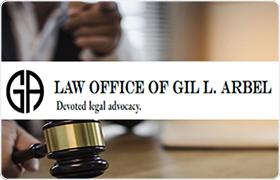Palos Verdes Peninsula White Collar Crime Lawyer, California, page 4
Sponsored Law Firm
-
 x
x

Click For More Info:
-
Law Office of Gil L. Arbel
28541 Conejo View Dr. Agoura Hills, CA 91301» view mapCriminal Defense Law Devoted Legal Advocacy
At the Law Offices of Gil L. Arbel, we understand that legal matters can be intimidating and complicated, which is why it is crucial to take an informed approach.
800-961-3980
Jan Lawrence Handzlik
Grand Jury Proceedings, Federal Trial Practice, White Collar Crime, Criminal, Corporate
Status: In Good Standing Licensed: 54 Years
Mark Steven Hardiman
Litigation, Health Care Other, White Collar Crime, Business
Status: In Good Standing Licensed: 36 Years
Edward Jerome Blum
White Collar Crime, DUI-DWI, Criminal, Securities Fraud
Status: In Good Standing Licensed: 28 Years
Amir Sam Dibaei
Litigation, Communication & Media Law, White Collar Crime, Corporate
Status: In Good Standing
Adam Frederick Summerfield
Litigation, White Collar Crime, Banking & Finance, Business
Status: In Good Standing Licensed: 16 Years
David Wesley Swift
Lawsuit & Dispute, Entertainment, White Collar Crime, Criminal
Status: In Good Standing
Sara Azari
White Collar Crime, Criminal, Administrative Law
Status: In Good Standing Licensed: 19 Years
Scott Daniel Karpf
White Collar Crime, Criminal, Professional Responsibility
Status: In Good Standing Licensed: 14 Years
Kathrin Andrea Wanner
Litigation, White Collar Crime, Banking & Finance, Health Care Other
Status: In Good Standing Licensed: 27 Years
John Scot Kennedy
Litigation, Aviation, White Collar Crime
Status: In Good Standing Licensed: 21 Years
 Gil L. Arbel Agoura Hills, CA
Gil L. Arbel Agoura Hills, CA Practice AreasExpertise
Practice AreasExpertise
